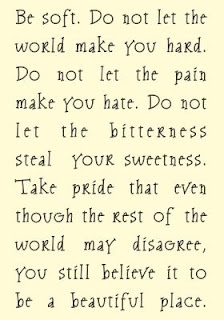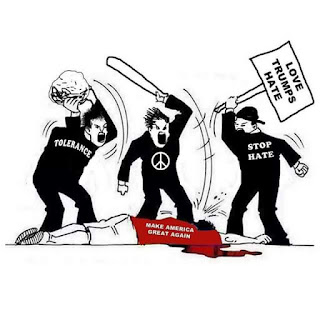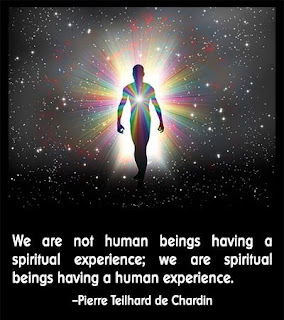Daughter of prominent Islamic scholar faces backlash for posting photo without a hijab on Facebook https://t.co/iz3XQUL02k— Haras Rafiq (@HarasRafiq) April 22, 2017
NY Times
written by Zainab Salbi
April 14, 2017
Maysoon Al-Suwaidan is known for being a poet, a TV personality and the daughter of Tareq Al-Suwaidan, a prominent Muslim Brotherhood member in Kuwait who has written many books, delivered numerous public speeches and appeared in TV interviews on Islamic subjects ranging from discussing the Quran to stories of the Prophet Mohammed. Like many daughters of Islamic scholars, Al-Suwaidan always embraced the headscarf. She traveled the world with it, she obtained her masters degree from Georgetown University with it, and she conducted her poetry TV show while wearing it. But late last year she posted a photo of herself on her Facebook page without the hijab, commenting that “I left to India in search of God away from any religion or sect and discovered that the biggest hijab between God and I is the hijab of people.” The literal translation of hijab in Arabic is partition used in many references including the head covering of women.
Al-Suwaidan’s statement continues explaining how she “let go of all that she inherited of hijab (partition) in her mind, and she started her search for God from the beginning.” She ends her statement musing about how “these beliefs, conflicts, judgments, and masks seem far away from her” after her experience in India.
Her decision to publicly announce her removal of the hijab and how she ultimately found God in India after all of her explorations of God in her own culture and region, including her visit to Mecca, unleashed a series of attacks on her and her father — especially by Muslim Brotherhood members and other religious groups. And it also opened a discussion of a much suppressed tension in the Middle East.
Most attacks are related to her lack of a right to take off her hijab. Some cursed her decision, some called her an infidel. Some of her fans expressed disappointment that she would reject the veil. Others appealed to her father, urging him to impose his will and enforce her wearing of the hijab. Meanwhile, some congratulated Al-Suwaidan for her courage to express her opinion publicly and acting in her truth rather than in societal expectations of her.
Salah, a commenter on her Facebook page said, “Maybe the issue is not with Islam but how Muslims are implementing Islam these days.” Raja, another commenter said, “ I feel bad and sorry for her losing of her way. It is not right to call her an infidel but we should pray for her to find her way back.” And Melanie remarked that Al-Suwaidan “is impolite and had risk[ed] her father’s reputation. Do what you want in your life but you dont’ need to do it publicly.”
The debate over the hijab is as contentious in the Middle East these days as it is in the Western world. The widespread phenomenon of embracing the hijab happened more with younger women throughout the 1990s and 2000s rather than the previous generations, members of which mostly did not take on the hijab. One widespread phenomenon is that of daughters taking on the hijab and their mothers then following suit. It was embraced for many reasons including political identity, a return to more religious traditions, and often for social reasons, including pacts of girlfriends or freedom of mobility hijab brings in the public sphere.
It helped that female public figures, from major Egyptian movie stars to well-respected anchors of Al Jazeera Arabic, have embraced the hijab in the last 10 to 15 years, making it even more popular with younger women in the region. However, the discussion of whether the hijab is a fundamental pillar of Islam or it simply related to freedom of decision has become the source of great tension in the region.
Many Muslim women who are not wearing the hijab are complaining that their rights and freedom of choice is being judged and they face tremendous pressure to wear it. Some are appealing to women who are wearing it to defend the rights of women who chose not to wear it just as they asked for their rights to wear it to be respected. Some who do embrace the hijab express a desire to take it off, but worry if they do so, they will be attacked and shunned by society. And some are keeping it on for strategic reasons as they believe it will have more public appeal in society and will ultimately enable their work and other functions.
Al-Suwaidan is about the first public figure to take off the hijab with a statement about the freedom in the search for God beyond any traditions and norms. She has pushed many sensitive buttons with her public decision but also triggered much needed public discussion on the role of Islam in people’s lives today. For now, she is the recipient of many attacks, but some have also come out to defend her right. Maybe this will pave a new path of discussion on Islam, women and how the religion is seen in Arab cultures today.
Last week at Tina Brown’s Women in the World New York Summit, I moderated a panel on Islam and, inevitably, the topic of the hijab came up and was hotly-debated between Zineb El Rhazoui, a journalist whose colleagues were killed in the Charlie Hebdo attack, and Samia Hathroubi, a French Muslim activist. Watch a highlight from that panel below and to see the full discussion, click here.
Italy: Muslim mom shaves head of daughter for not wearing hijab https://t.co/X65lsQl88X #Islam #sharia— GlobalAwareness101 (@Mononoke__Hime) April 1, 2017
Meanwhile this brave woman in Iran faces arrest for protesting forced veiling. pic.twitter.com/ONXOKRNNve— Rita Panahi (@RitaPanahi) March 4, 2017
In #Iran, every day 2,000 women in large cities are arrested due to ignoring the law to wear mandatory Hijab!#NoForcedHijab #IWD2017 pic.twitter.com/15x4v8RXfK— Maryam Shafipour (@MarShafipour) March 8, 2017
Do western #feminists think that Iranian women deserve the cruelty they are tolerating?#NoForcedHijab #InternationalWomensDay #IWD2017 pic.twitter.com/wAs8PLpatc— Maryam Shafipour (@MarShafipour) March 8, 2017
It is the official statistics which was announced by the police commander last september👇🏻https://t.co/5fvvsKo7sG— Maryam Shafipour (@MarShafipour) March 8, 2017





































No comments:
Post a Comment